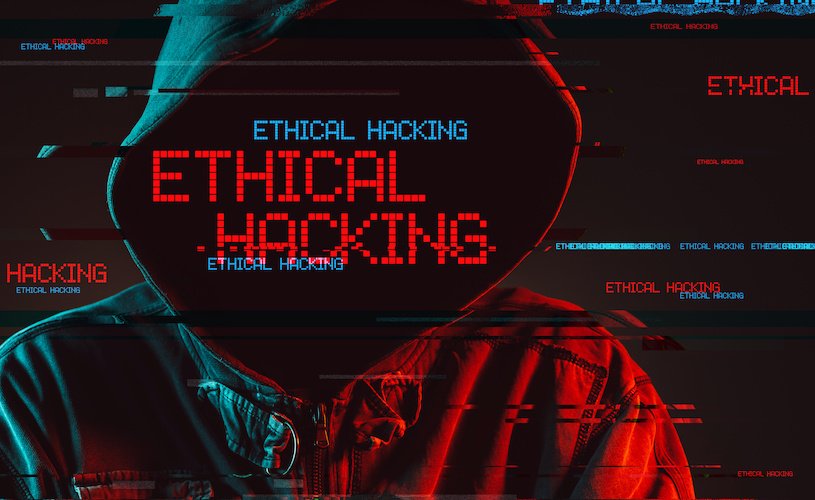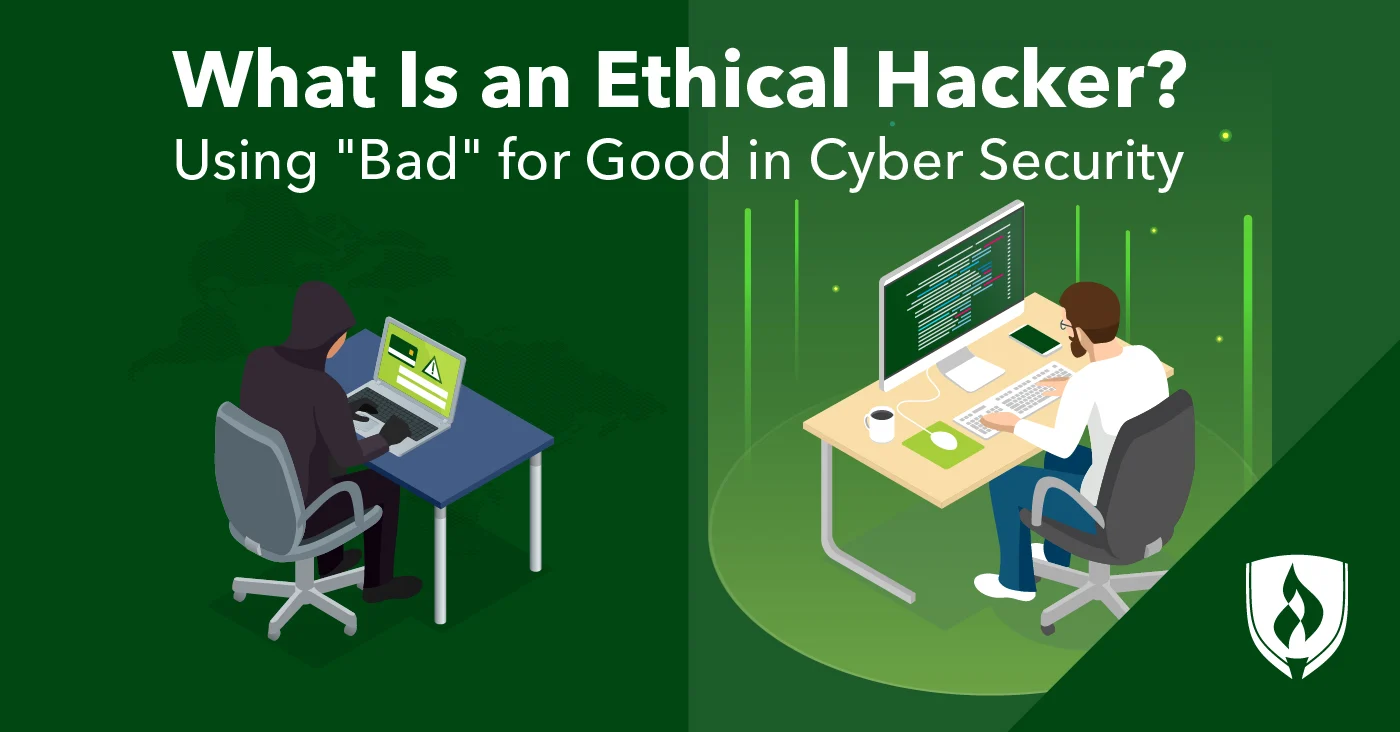How To Become an Ethical Hacker: A Small Insight
A Cyber-Security post by Olly Pease

If you have an interest in hacking but want to use your skills for positive purposes, a career in ethical hacking might be a great fit. To become an ethical hacker, you’ll need strong programming abilities, a keen eye for detail, and experience in cybersecurity and computer engineering. Landing your first job in ethical hacking can be challenging, but for those passionate about this path, it can be a highly fulfilling role. In this article, we explore what an ethical hacker does, how to pursue this career, and what you can expect from the job.
How to become an ethical hacker
Becoming an ethical hacker requires a combination of skills, experience, and qualifications. As this profession plays a crucial role in modern cybersecurity, it’s important to demonstrate technical expertise to future employers. Here’s a step-by-step guide to help you start your career as an ethical hacker and meet all the necessary requirements:
1. Go to university
Most ethical hackers hold at least an undergraduate degree in computer science or network engineering. This helps demonstrate a strong work ethic and equips you with foundational programming skills necessary for ethical hacking. It’s beneficial to choose courses with modules on cybersecurity and cyber threats. Additionally, consider pursuing a master’s degree in cybersecurity or a related field to deepen your expertise.
2. Gain ethical hacking qualifications
Two of the most recognized ethical hacking certifications are the Certified Ethical Hacker (CEH) and the Offensive Security Certified Professional (OSCP). These certifications help you develop the practical skills necessary for your role, proving to employers that you have a solid understanding of ethical hacking principles. Certifications offered by the EC-Council in cybersecurity are also valuable additions to your CV.
3. Gain work experience
Once you’ve earned your qualifications, gaining work experience in cybersecurity is vital. Seek roles that enable you to work with vulnerability testing tools such as Metasploit and Netsparker. These positions will help you demonstrate practical experience directly relevant to ethical hacking. Entry-level jobs in security administration, security specialist roles, or security software development are ideal starting points.
4. Write a tailored ethical hacker CV
Before applying for jobs, create a tailored CV that highlights your relevant skills, education, and qualifications. Ensure that your personal summary at the top of your CV quickly and clearly outlines your abilities and achievements. Review job listings to identify key criteria that employers are looking for, and ensure your CV reflects these points.
5. Apply for roles
With your CV ready, begin applying for ethical hacker positions. Apply to a range of roles and prepare thoroughly for interviews by researching common interview questions and topics in cybersecurity. Once you secure your first position, you can start gaining experience and working your way up to more senior roles within the field.
What is an ethical hacker?
Before deciding to become an ethical hacker, it’s essential to understand what this role entails. Ethical hackers are key players in cybersecurity, responsible for identifying and often fixing vulnerabilities in a company’s systems. Their job is to simulate attacks to uncover weak points before real cyberattacks occur. Ethical hackers work either as freelancers or in-house for organizations, providing valuable insights into the security protocols and attack methods that can help prevent cyber threats.
While their role overlaps with other security positions like security engineers or security analysts, ethical hackers are distinct in their approach, as they actively try to “hack” into systems on behalf of the company. This helps businesses safeguard their data and systems by fixing vulnerabilities before they can be exploited.
The key responsibilities of ethical hackers
Ethical hackers have several important day-to-day responsibilities, including:
- Conducting security assessments: Identifying potential security risks and evaluating how well an organization is prepared for a cyberattack.
- Optimizing network security: Performing threat modelling to simulate potential threats and assess the organization’s security defenses.
- Writing reports: Documenting findings from security assessments and threat modelling. Ethical hackers provide recommendations for addressing these security risks, ensuring that non-technical teams can easily understand the information.
What skills do I need to be an ethical hacker?
To succeed as an ethical hacker, you need to continuously develop a range of skills. Key skills include:
- Strong coding skills: Proficiency in programming languages such as Python, C++, and JavaScript is essential. Ethical hackers use these languages to model security threats and identify vulnerabilities in systems.
- Knowledge of computer hardware: Employers expect ethical hackers to have a strong understanding of both hardware and software, as vulnerabilities can exist in both areas.
- Problem-solving abilities: Ethical hackers need to creatively identify security gaps that others may have missed. Lateral thinking is critical for developing effective solutions to bypass IT security systems.
- Excellent communication skills: Whether you’re collaborating with colleagues or writing detailed reports for clients, strong verbal and written communication is necessary. Ethical hackers must explain complex technical issues clearly to non-technical teams.
What is it like to work as an ethical hacker?
The average salary for a cybersecurity analyst in the UK is around £36,847 per year, with regional variations. In London, the average salary rises to £45,320, while in Manchester, it’s around £41,206. As you gain more experience and seniority, your salary as an ethical hacker can increase significantly.
You can choose to work in-house for a company or as a freelancer, which can offer more flexibility and potentially higher pay. Freelancers often travel to various client locations, but this also opens opportunities for working with a wider range of businesses. Most ethical hacker roles follow the typical 9 am to 5 pm office hours, though busy periods may require working evenings or weekends.
Conclusion
Becoming an ethical hacker requires dedication, the right qualifications, and hands-on experience. By following the steps of obtaining a relevant degree, earning essential certifications, and gaining practical cybersecurity experience, you can position yourself as a qualified candidate in this dynamic field. With cybersecurity becoming increasingly crucial for businesses of all sizes, ethical hackers play a vital role in identifying vulnerabilities and preventing potential cyberattacks. Whether you choose to work in-house or as a freelancer, ethical hacking offers a fulfilling career with ample opportunities for growth and specialization.
Hi I'm Olly, Co-Founder and Author of CybaPlug.net.
I love all things tech but also have many other interests such as
Cricket, Business, Sports, Astronomy and Travel.
Any Questions? I would love to hear them from you.
Thanks for visiting CybaPlug.net!






